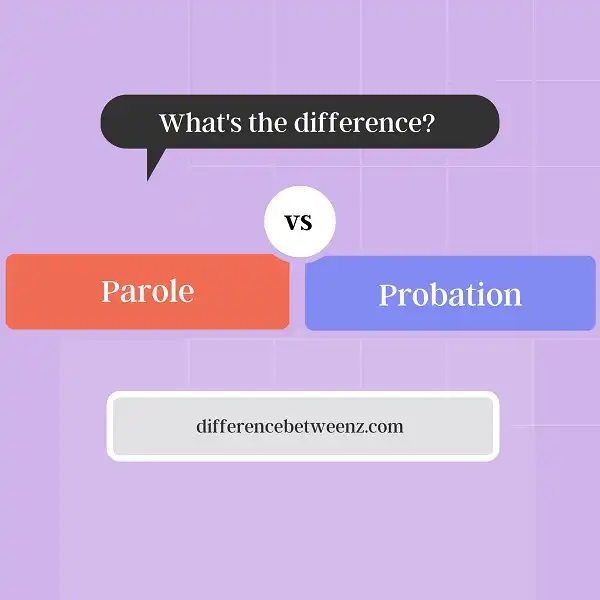If you are convicted of a crime in the United States, you may be sentenced to probation or parole. These are two different types of supervision that criminal offenders may be subject to after conviction. While they have some similarities, there are also some important differences between parole and probation. This article will explore those differences.
What is Parole?
Parole is a conditional release from prison or jail. Parole is granted by the Parole Board, an agency of the government that operates independently from the judicial system. Parolees must typically abide by certain conditions, such as reporting regularly to a parole officer, maintaining employment, and avoiding criminal activity. Parole may be terminated if parolees violate these conditions. Parole has been shown to significantly reduce rates of recidivism among offenders and is therefore considered an important tool for criminal justice agencies in preventing further crime and improving public safety. Ultimately, the effectiveness of parole depends on a combination of personal factors and external circumstances, making it essential that parolees are provided with the support they need to make positive changes in their lives.
What is Probation?
Probation is a court-ordered period of supervision imposed on an individual who has been convicted of a crime. The length and conditions of probation vary depending on the severity of the crime and the jurisdiction in which it was committed. Probation typically involves regular check-ins with a probation officer, as well as drug testing and restrictions on travel and employment. Probation may also require the completion of community service hours or attendance at counseling sessions. The goal of probation is to provide offenders with a structured period of rehabilitation that will ultimately reduce recidivism rates. Probation officers work closely with offenders to help them successfully reintegrate into society and avoid future involvement in criminal activity.
Difference between Parole and Probation
Parole and probation are two important criminal justice terms that often get confused in everyday conversation. While they both refer to periods of conditional release from incarceration, their basic meanings differ significantly. Parole refers to the conditional release of a prisoner before the end of their sentence, whereas probation typically involves the conditional release of someone who has been found guilty, but has not yet served time in prison. Parole requires that the person abides by specific conditions such as avoiding further crimes or meeting with parole officers on a regular basis. Probation, on the other hand, requires less intensive monitoring and generally does not involve any mandatory court appearances. Overall, parole and probation have different goals, regulations, and requirements that make them unique aspects of the criminal justice system.
Conclusion
Parole and probation are both criminal justice systems that allow for offenders to be released back into the community. The main difference between parole and probation is that parole is a conditional release, while probation is an unsupervised release. In California, there are over 1 million people on parole and over 3 million people on probation.


